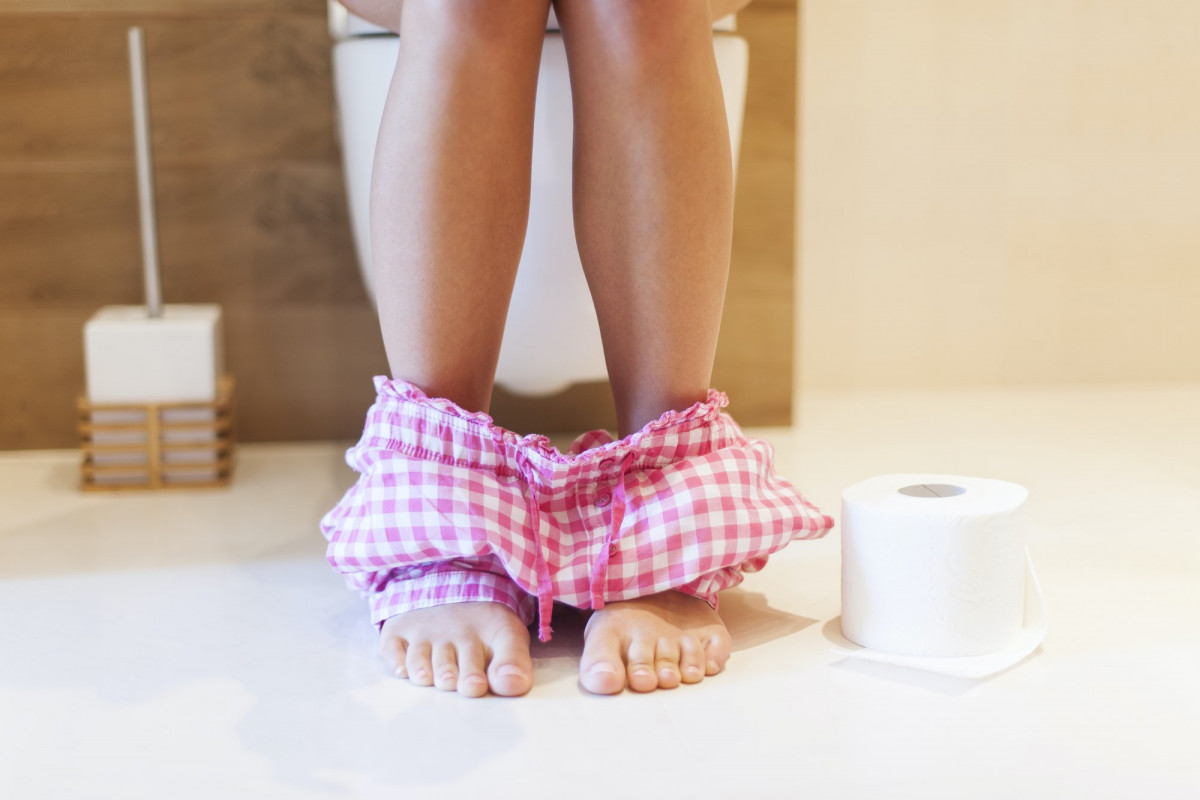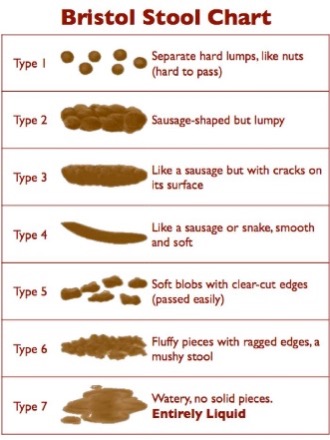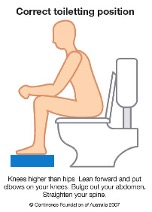
Do you suffer from constipation? Has this been an ongoing issue for you over time?
A lot of patients seek Women’s Health physiotherapy for a variety of reasons. Our practice offers a diverse and patient-centered care for pre- and post-natal patients, pelvic organ prolapse management, overactive bladder and incontinence symptoms as well as concerns with sexual health. Not all, but many clients whose symptoms span across the spectrum of these conditions also report that they suffer with either acute or chronic constipation.
What is normal?
An ideal stool to pass should appear as a Type 3-4 according to the Bristol Stool Chart (Heaton et al, 1997).
What does an unhealthy stool look like? Stool types 1-2 indicate constipation and Types 5-7 may indicate diarrhoea.
There are several causes of constipation:
- Insufficient water intake
- Diet with insufficient fibre or excessive meats and processed foods
- Medication
- Pregnancy
- Delaying too long before voiding
- Anxiety and/or depression
- Gastrointestinal conditions such as, haemorrhoids, Irritable Bowel Syndrome or Diverticulitis
- Medical conditions such as Endometriosis, Multiple Sclerosis, Parkinson’s disease or Diabetes
- Side effect of treatments such as chemotherapy and/or radiotherapy
Should I be concerned about constipation?
Whether it is acute or persistent over time, straining on the toilet can evolve into many potential problems. Trying to pass a hard stool, can not only cause trauma to the bowel and anus but may also result in stretching structures of the pelvic floor. The function of the pelvic floor, is to allow the human body to perform normal daily tasks without leaking urine, faeces or wind. It also has a role in sexual function. Persistent stretching and weakening of these pelvic floor structures can lead to incontinence and prolapse symptoms in women.
What can we do to help?
Monitoring your diet, toileting habits, fluid intake, bladder re-training and pelvic floor training are among many treatment methods that we may use to assist with these concerns.
 Constipation management may require a multidisciplinary approach. Physiotherapists with a special interest in Pelvic health liaise with dieticians, obstetricians, gynecologists, gastroenterologists, colorectal specialists, and urologists. We have a dietitian on staff which provides a more fluid and comprehensive quality of care for our patients.
Constipation management may require a multidisciplinary approach. Physiotherapists with a special interest in Pelvic health liaise with dieticians, obstetricians, gynecologists, gastroenterologists, colorectal specialists, and urologists. We have a dietitian on staff which provides a more fluid and comprehensive quality of care for our patients.
One major influence on constipation is the sitting posture when opening your bowels.
- Elevating your knees above your hips by placing a stool under the feet or raise up onto toes
- Leaning forward, resting elbows on knees
- Without pushing or straining, allow your belly to gently swell towards the floor
- Feel the relaxation of the muscles around the anus
- Allow the stool to pass naturally
If you are having difficulty managing your constipation or any other associated symptoms, don’t let it continue. Let us help you get your motions back to normal. Don’t let pooping be a strain. Contact Us to Book your Appointment.
References:
Heaton, K W & Lewis, S J 1997, ‘Stool form scale as a useful guide to intestinal transit time’. Scandinavian Journal of Gastroenterology, vol.32, no.9, pp.920 – 924. Retrieved on 2/3/2007
https://www.continence.org.au/types-incontinence/faecal-incontinence/constipation








